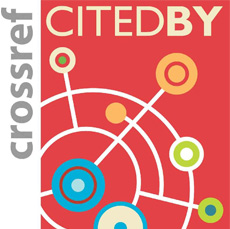ISSN : 1226-4946(Print)
ISSN : 2288-5412(Online)
Yeats’s Rediscovery of India and a Development of Universalism
Yoo Baekyun
Abstract
In this paper, I argue that W. B. Yeats’s pursuit of universalism was rekindledby his rediscovery of the East through Tagore. Yeats’s political experiences duringthe 1910s also influenced his fascination with universalism. I will first discuss thesignificance of Yeats’s fascination with Tagore in relation to his rediscovery of theimportance of East, particularly India, not only for spiritual reasons, but also forpolitical reasons. That is, Tagore ultimately gave Yeats an opportunity to see Indiaas a place to reconcile his split allegiance to both Romanticism and nationalism,and to art and politics. The East, for Yeats, is the place to swerve from hisRomantic predecessors for political reasons. At this time, a return to East wasespecially important to him because it also offered a psychological vindication forhis political setback?being attacked for his anti-nationalism?during the Playboyriots. That is, the pursuit of Eastern values, particularly Indian values, became hisway of fighting colonialism, as well as for finding spiritual wholeness. By the timeYeats returned to the East, Yeats also began to witness the most turbulent anddramatic political events of his life such as the 1916 Easter Rising, the Irish andEnglish War, and the Irish Civil War, which Yeats viewed as the culmination ofthe hatred between political groups and parties. His rediscovery of Eastern valuesthrough Tagore and his political experiences at that time slowly led Yeats todevelop a concept of universalism: the unity of East and West. In other words,Yeats’s continuous movement towards universalism during this period was thenecessary and inevitable course to deal with his political experiences: hispsychological need to purify the bitterness and hatred Irish politics breeds into hismind, and his need to offer a more inclusive political vision to the Irish politicians who fight out of hatred of opposing parties. What Yeats basically wants to do bypursuing universalism is to create a citizen of the universe whose consciousnesstranscends the distinction between one and many, present and past, and East andWest. Poems such as “The Double Vision of Michael Robartes,” “Sailing toByzantium,” “Among School Children,” and “Byzantium,” written after 1919 expressYeats’s universalist idea of reconciling East and West employing a meditativescheme. It is unmistakable that all three poems encapsulate Yeats’s universalconsciousness, but we also see that they are also tinged by Yeats’s skepticism aboutthe transcendental state, as well as about universalism, in one way or another.Yeats’s doubt about universalism betrays his conflicting political agenda: his beliefin the Anglo-Irish aristocratic government. Looking at other poems (“The WildSwans at Cool,” “In Memory of Major Robert Gregory,” “An Irish Airman foreseeshis Death,” “A Prayer for my Daughter”) published in the same period reveal hiscovert allegiance to the Anglo-Irish aristocratic tradition.
Keywords :
Yeat’s Universalism,
Nationalism,
Yeats’s belief in aristocratic government,
Indian influences on Yeats’s Poetry,
Yeats and Tagore,
Yeats’s rediscovery of Eastern values,
The meditative scheme in Yeats’s poetry,
예이츠의 보편주의,
민족주의,
예이츠의 귀족적 정치에 대한 믿음,
예이츠시에 끼친 인도 의 영향,
예이츠 와 타고르,
예이츠 동양적 가치의 재발견,
예이츠 시의 명상적 구조










